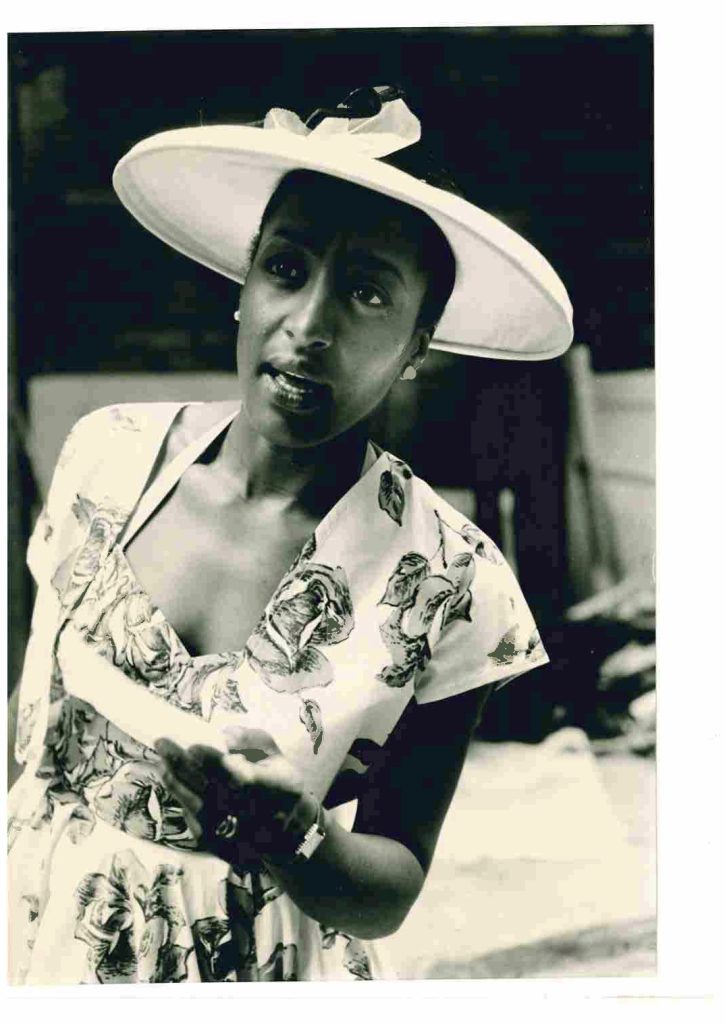Ahead of Dame J Shirley Thompson’s performance at BIF next month, with her one woman opera ‘Women of Windrush’, we take a closer look at the history of Windrush on its 75th anniversary this week.
What is Windrush and who are the Windrush Generation?
The 22 June of June marks a significant date in British history as Windrush Day, commemorating the arrival of the HMT Empire Windrush in 1948. This remarkable event brought hundreds of Caribbean immigrants to Britain, and their story remains a testament to resilience, struggle, and the pursuit of a better life.
Although not all Windrush generation migrants arrived on HMT Empire Windrush itself, the ship became a symbol of the wider mass-migration movement.
Post-World War II, Britain faced labour shortages and sought to rebuild its economy. The invitation to citizens of the British colonies in the Caribbean to migrate to the “Mother Country” was a response to this challenge. The HMT Empire Windrush symbolised hope, carrying the first wave of Caribbean immigrants to the shores of Britain.
Many of those who came to the UK had served in the British armed forces in World War Two.
They became manual workers, cleaners, drivers, and nurses in the newly established NHS – and some broke new ground in representing black Britons in society.
The arrival of the Windrush generation was met with various challenges. Despite holding British citizenship, they encountered racism, discrimination, and a hostile reception. Nevertheless, their determination persevered, leading to the establishment of vibrant Caribbean communities, finding employment, and making substantial contributions to British society. These pioneers of multiculturalism enriched the nation’s cultural fabric with their traditions, music, and distinctive identities.
The Windrush generation left an indelible mark on British society, making invaluable contributions across various fields. Figures such as Sam King, who later became London’s first black mayor, and acclaimed authors like Andrea Levy and Linton Kwesi Johnson emerged from this generation. Additionally, Caribbean music genres like reggae and ska captivated the nation, leaving an enduring impact on British pop culture.
A model of the ship HMS Empire Windrush featured at the London 2012 Olympic opening ceremony.
The Windrush Scandal
However, the Windrush generation faced an unfortunate chapter in their journey. The Windrush scandal of 2018 revealed the wrongful targeting, detention, and even deportation of many individuals due to changes in immigration policy.
The 1971 Immigration Act gave Commonwealth citizens living in the UK indefinite leave to remain – the permanent right to live and work in the UK. This included the Windrush generation but also people from other former British colonies in South Asia and Africa. In April 2018, it emerged that the UK Home Office had kept no records of those granted permission to stay, and had not issued the paperwork they needed to confirm their status. It had also destroyed landing cards belonging to Windrush migrants, in 2010.
Those affected were unable to prove they were in the country legally and were prevented from accessing healthcare, work and housing. This revelation prompted widespread public outcry, leading to the establishment of Windrush Day. It stands as an opportunity to honour their contributions, shed light on their struggles, and advocate for justice and equality. In 2018 the then Prime Minister Theresa May apologised for their treatment and an inquiry was announced and a compensation scheme established.
The Windrush generation today
It is not clear how many people from the Windrush generation lives in the UK today but it is thought to be in the thousands.
Windrush Day, observed on 22 June, serves as a poignant moment to reflect on the resilience and triumphs of the Windrush generation. It provides a platform to celebrate their rich heritage, recognise their achievements, and educate future generations about their pivotal role in shaping modern Britain. Across the nation, events, exhibitions, and cultural activities are organised to commemorate their journey and underscore the ongoing fight for justice.
The 75th anniversary this year is being marked with a series of concerts, exhibitions and seminars across the country.
Women of Windrush at Buxton International Festival
To coincide with the 75th anniversary of Windrush, Dame Shirley J Thompson will be performing her one woman opera Women of Windrush at Buxton International Festival on 21 July 2023.
Through mesmerising instrumental music and song, multi-award-winning composer Shirley J Thompson’s opera, Women of the Windrush, portrays inspirational narratives from the lives of a variety of women who travelled to the UK from the West Indies (1940s – 1960s).
Archive film and video projection interweave compelling stories from a cricketer’s wife, a student nurse, a concert pianist and a new bride, who all relate their experiences of arriving and settling in England. Charismatic and versatile lyric soprano, Nadine Benjamin, embodies the essence of the settlers’ experiences in this operatic re- imagining of Shirley J Thompson’s original film, Memories in Mind (1992).
‘A gripping work…celebrating human community and resilience’ – Opera Magazine
‘Excellently performed, mind-stretching (music)…there are fascinating sounds aplenty’ – BBC Music Magazine
‘A pioneering, powerful and wonderfully dramatic compose’ – BBC Radio 3
Click here for more information and book tickets.

